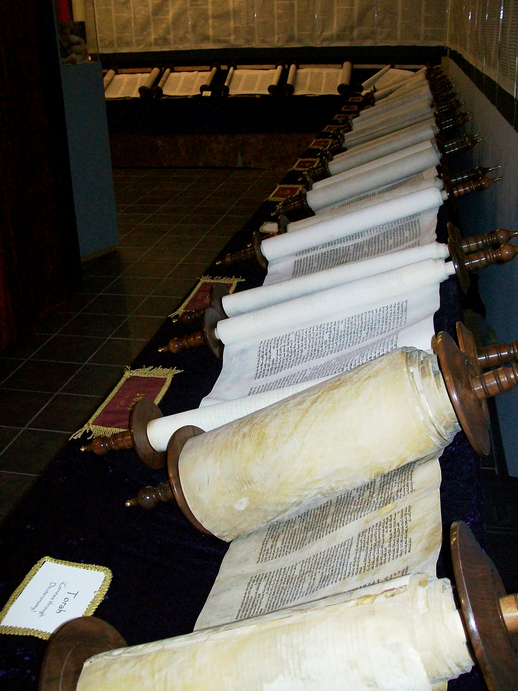 The Hebrew Bible or Tanakh[a] (/tɑːˈnɑːx/;[1] Hebrew: תָּנָ״ךְ Tānāḵ), also known in Hebrew as Miqra (/miːˈkrɑː/; Hebrew: מִקְרָא Mīqrāʾ), is the canonical collection of Hebrew scriptures, including the Torah, the Nevi'im, and the Ketuvim. Different branches of Judaism and Samaritanism have maintained different versions of the canon, including the 3rd-century BCE Septuagint text used in Second Temple Judaism, the Syriac Peshitta, the Samaritan Pentateuch, the Dead Sea Scrolls, and most recently the 10th-century medieval Masoretic Text compiled by the Masoretes, currently used in Rabbinic Judaism.[2] The terms "Hebrew Bible" or "Hebrew Canon" are frequently confused with the Masoretic Text; however, this is a medieval version and one of several texts considered authoritative by different types of Judaism throughout history.[2] The current edition of the Masoretic Text is mostly in Biblical Hebrew, with a few passages in Biblical Aramaic (in the books of Daniel and Ezra, and the verse Jeremiah 10:11).[3]
The Hebrew Bible or Tanakh[a] (/tɑːˈnɑːx/;[1] Hebrew: תָּנָ״ךְ Tānāḵ), also known in Hebrew as Miqra (/miːˈkrɑː/; Hebrew: מִקְרָא Mīqrāʾ), is the canonical collection of Hebrew scriptures, including the Torah, the Nevi'im, and the Ketuvim. Different branches of Judaism and Samaritanism have maintained different versions of the canon, including the 3rd-century BCE Septuagint text used in Second Temple Judaism, the Syriac Peshitta, the Samaritan Pentateuch, the Dead Sea Scrolls, and most recently the 10th-century medieval Masoretic Text compiled by the Masoretes, currently used in Rabbinic Judaism.[2] The terms "Hebrew Bible" or "Hebrew Canon" are frequently confused with the Masoretic Text; however, this is a medieval version and one of several texts considered authoritative by different types of Judaism throughout history.[2] The current edition of the Masoretic Text is mostly in Biblical Hebrew, with a few passages in Biblical Aramaic (in the books of Daniel and Ezra, and the verse Jeremiah 10:11).[3]
... summary obtained from Wikipedia
